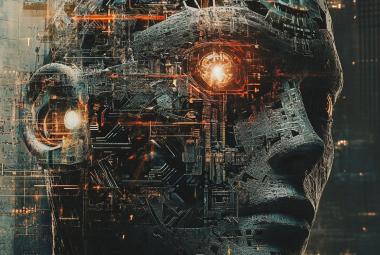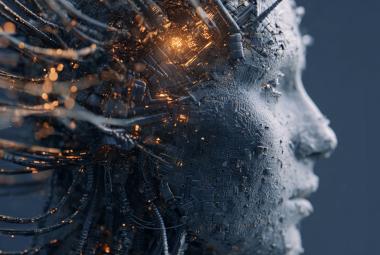In 1896 the author H.G. Wells published a science-fiction novel titled The Island of Dr. Moreau. It tells the story of a mysterious island inhabited by unnatural creatures. These unfortunate beasts were the result of horrific scientific experimentation - they were created part animal and part human. The novel warns of the dangers of unchecked and irresponsible scientific research.
Animal-human hybrids were once purely the stuff of science fiction; however, fiction has now become reality. Scientists have created sheep that possess human hearts and livers, pigs that have been born with human blood, and a variety of other creatures whose genetic makeup has been tampered with. Biologists call these hybrid animals chimeras. They are named after a mythical Greek creature that was said to possess a lions head, a goats body, and a serpents tail.
More Than a Myth
Scientists at the Salk Institute in San Diego recently announced that they have successfully engineered mice that possess a small percentage of human brain cells. Scientists injected human embryonic stem cells into the brains of rodent fetuses, resulting in the birth of mice with both human and rodent brain cells. One goal of the research is to make realistic models of neurological disorders such as Parkinsons disease and Lou Gehrigs disease.
Irving Weissman (Stanford University) conducted a similar experiment using rodents. Weissman and his team injected human neural stem cells into mouse fetuses. Weissman also helped make the first mouse with a nearly complete human immune system. Although the percentage of human brain cells in the existing mice is only about one percent, Weissman said he is considering making chimeric mice whose brains are made entirely of human cells.
Scientific research involving chimeras has invoked many questions. Does the injection of human cells into a rodents brain affect its cognitive abilities? How human must a chimera become before more stringent research guidelines are applied? Are there any federal laws regulating such experiments?
The Yuck Factor
The frightening reality is that there are currently no federal guidelines to regulate chimeric experiments. Researchers have been left alone to regulate themselves, and there seems to be no consensus within the scientific community over what is and is not considered ethical. While politicians debate the ethical and moral issues, science has continued its advance. Moral objections to chimeric research are often dismissed by proponents as simply knee-jerk reactions based on instinctual - rather than logical - thinking. These misgivings are sometime referred to by scientists as the ''yuck factor.'' Unfortunately, many researchers describe the ''yuck factor'' as though it were an obstacle to scientific discovery, instead of evidence of a troubled conscience.
Exploring these new frontiers of science and medicine without the guidance of a strong moral compass will lead us into an ethical quagmire with dangerous repercussions. Albert Einstein once said that ''science without religion is lame, religion without science is blind.'' Without some kind of clear guidelines, we risk adopting a form of logic that would leave us tempted not only to ponder but also to do the unthinkable.
The Dark Side
With most of the critical research being done by small laboratories under intense competitive pressures - and with few of the regulatory or procedural protections typical of larger governmental or corporate laboratories - the potential for major catastrophe has many knowledgeable observers very concerned. The greatest apprehensions are in the areas of genetic research and cloning - especially in cross-species experiments, which are likely to lead to unknown diseases and unanticipated complications.
The avalanche of advances in the current biotech revolution is both exciting and frightening. The promise of new remedies and cures in many diverse fields of medicine has given new hope to those who suffer from diseases like diabetes and Parkinsons. Meanwhile science continues to outrun lawmakers. The biotech revolution has produced a host of ethical questions that have yet to be answered. These questions strike at the very heart of what it means to be human.






